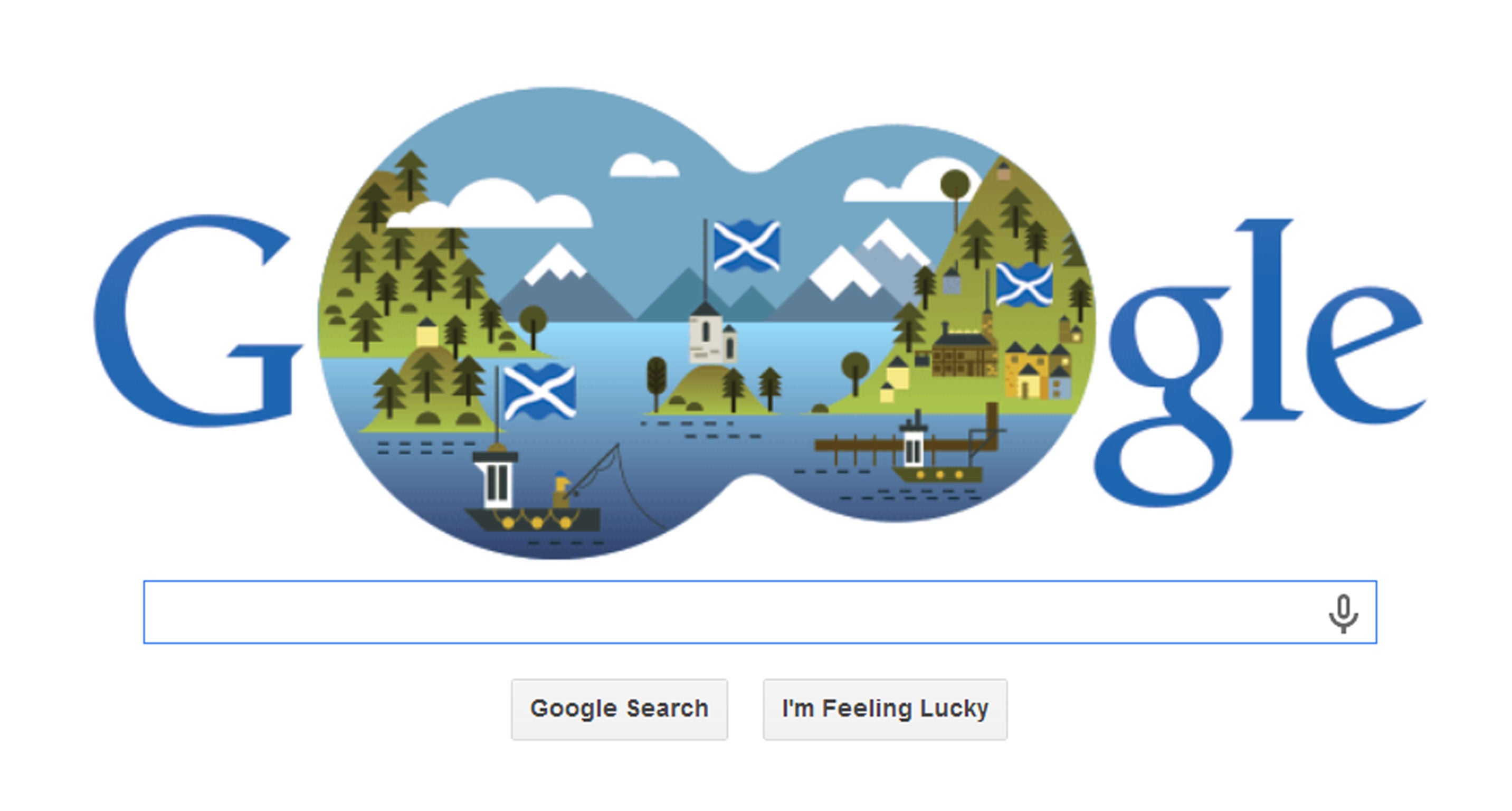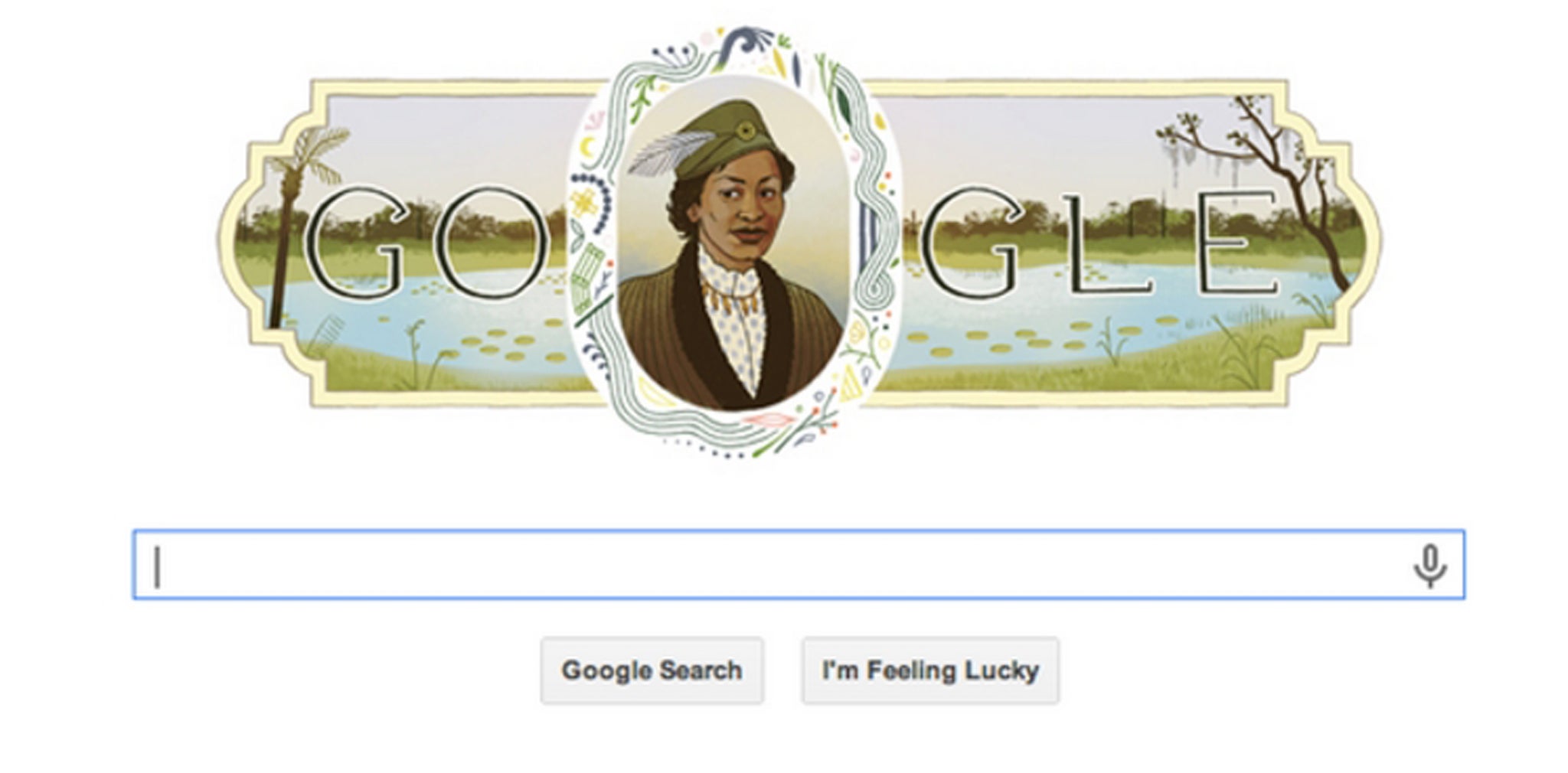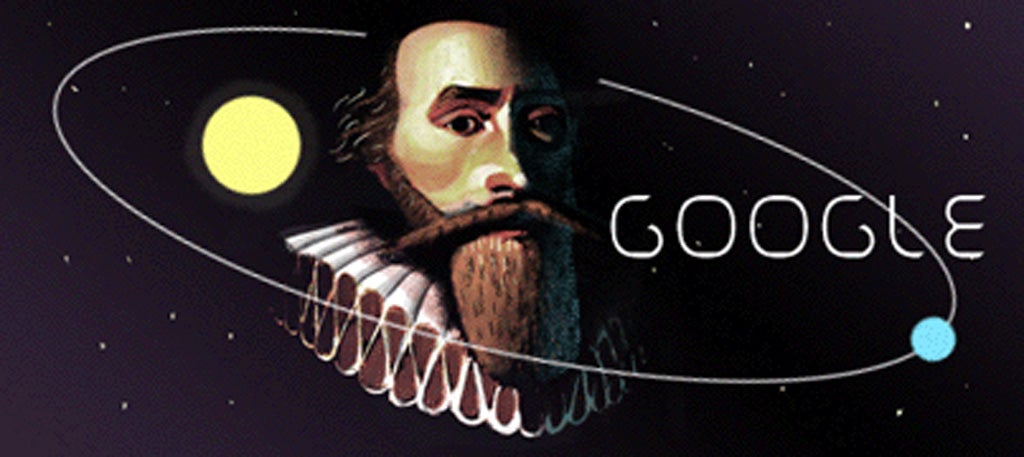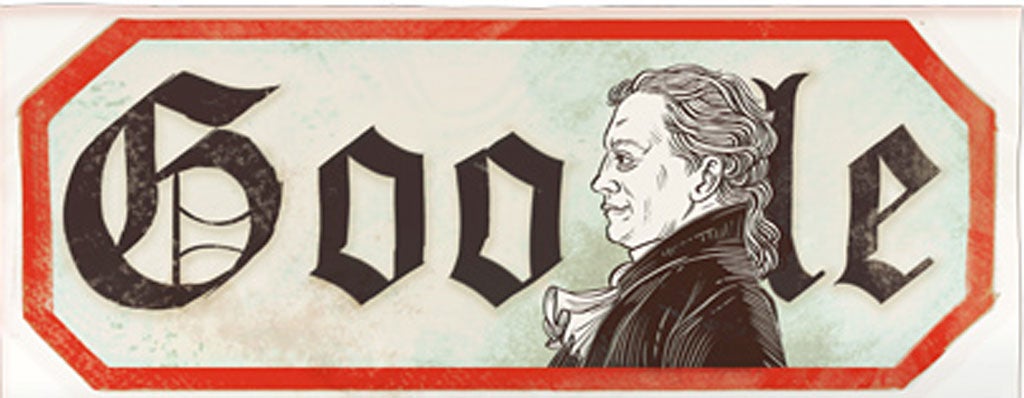Why Google shouldn't doodle
McDonald's doesn't align its brand with Gandhi's face, so why should this dubious tech behemoth get away with it?

Your support helps us to tell the story
From reproductive rights to climate change to Big Tech, The Independent is on the ground when the story is developing. Whether it's investigating the financials of Elon Musk's pro-Trump PAC or producing our latest documentary, 'The A Word', which shines a light on the American women fighting for reproductive rights, we know how important it is to parse out the facts from the messaging.
At such a critical moment in US history, we need reporters on the ground. Your donation allows us to keep sending journalists to speak to both sides of the story.
The Independent is trusted by Americans across the entire political spectrum. And unlike many other quality news outlets, we choose not to lock Americans out of our reporting and analysis with paywalls. We believe quality journalism should be available to everyone, paid for by those who can afford it.
Your support makes all the difference.When Google honored African-American author Zora Neale Hurston with a custom logo — a Google Doodle — on its homepage earlier this month, the company won praise.
Time and the Los Angeles Times wrote approving stories. “Google's tribute was fitting for Hurston, who was 'a groundbreaking experimental novelist, champion of black vernacular culture and a daring anthropological scholar,' ” Daphne Brooks, a Princeton University English professor, told The Root.
And the world kept turning. Another day, another Doodle.
But is Google the right booster for one of the Harlem Renaissance's greatest treasures? We'd be appalled if McDonald's used Martin Luther King Jr.'s image to sell hamburgers or if Coca-Cola put Mahatma Gandhi on a soda can. So why is it any different when a tech behemoth uses Hurston to hawk searches?
Since Google began Doodling in 1998, it has aligned its brand with some of the greatest human beings to have walked the Earth, borrowing the pixie dust of Gandhi, Martin Luther King to name just two. In a role once reserved for the U.S. Postal Service and its stamps, Google now decides who deserves tribute — Hurston yes, Malcolm X no.

But it's time for the company to stop folding major political and cultural figures into its logo.
Remember: Google is embroiled in privacy lawsuits around the globe even as it criticizes the National Security Agency for invading Americans' privacy. It protests censorship yet continues to expand its presence in China. It's been accused of manipulating search results to benefit its business and may be the world's largest copyright violator. It celebrates great African-Americans in Doodles but won't release its minority hiring statistics.
With Doodles, a company with unprecedented reach into our private lives incorporates history into its brand — a brand most Westerners with a computer stare at every day. That's not just creepy, it's downright Orwellian.
Google has caught flak for its Doodle-ocracy before. It's been accused of insufficiently marking Memorial Day and Veterans Day. For the past several years, the site has restricted views of a rainbow banner honoring Gay Pride Month to those who search “pride related” terms such as “LGBT” and “marriage equality.” And last year, the company was hammered for showcasing labor organizer Cesar Chavez on Easter Sunday instead of that guy who rose from the dead, Jesus Christ.
Every brand must know its place. We don't expect or need to learn history from highway billboards or television advertisements. When we do — when Apple sells computers with a “Think Different” ad featuring Gandhi, or Nike uses the Beatles' “Revolution” for a TV spot, or Mercedes buys Martin Luther King's image to sell cars — capitalists turn artists and statesmen into salesmen.
Of course, Google searches are free. And though the company does sell Doodle T-shirts, some argue that the Doodle isn't to be taken as a hard sell.
“They've decided to continue something that started in the wonky, hacker spirit,” says Scott McCloud, the author of Understanding Comics: The Invisible Art, who worked with Google's Doodle team to design a logo for cartoonist Will Eisner. “I don't think they're looking at it as a chance to siphon the rep from historical figures.”
In the past three years, Google has indeed Doodled uncontroversial geeks such as Julius Richard Petri, inventor of the Petri dish, and Robert Bunsen, inventor of the Bunsen burner. Even when not focused on science or technology, few Doodles — progressive reformer Jane Addams, painter Pablo Picasso, filmmaker Ingmar Bergman — stir strong emotions.
But Google also Doodled JFK on the 50th anniversary of his inauguration. It Doodled Sputnik on the 50th anniversary of its launch, provoking conservative ire. The site went Doodle-less on Sept. 11, 2011, and slapped a black bar over its logo to protest the Stop Online Piracy Act (SOPA) in 2012. That same year, Google commemorated Memorial Day with a small flag — a Doodlette.
McCloud says the scrutiny of Doodles may reflect the company's growth. When the company Doodled Claude Monet in 2001, for example, more people had probably heard of the impressionist painter than the scrappy search engine challenging AltaVista for market share. Now, when the company spotlights someone, Google and the Doodle are also in the spotlight. Besides, McCloud thinks Doodles differentiate Google from stodgier companies.
“If it was Microsoft in 1993, do you think they'd give a f—- about the guy who invented the Petri dish?” he said.
Those who keep the flame burning for long-deceased authors and scientists are certainly eager for Google's help.

“Zora being captured as the Google of the day has elevated her in terms of recognizability,” said Victoria Sanders, the literary agent who represents the Zora Neale Hurston Trust. Sanders pointed out that Their Eyes Were Watching God rose from 550 to 173 on Amazon's bestseller list after the Doodle — no mean feat for a book written more than 75 years ago. “Is it a wonderful surprise? Yes,” she said.
But if an artist's legacy is for sale, is it compromised? Sanders — who worked with Google on the Hurston Doodle and licensed the author's image to a bank for a five-figure sum — doesn't think so.
“My job is to try and continue to sell Zora Neale Hurston's books and raise her profile domestically and internationally,” Sanders said. “At a time we're seeing decreased readership . . . anything that shines a light on one of the great American writers is fine by me.”
Google's light, however, can be diffuse. When we search under Hurston's Doodle, are we just honoring Their Eyes Were Watching God, a touchstone of 20th-century literature that offers a gritty view of a black teenager's life in Florida circa 1900? Or are we endorsing Hurston's Republican politics and status as “America's favorite black conservative,” as Columbia University linguist John McWhorter has dubbed her?

After the Doodle, Hurston became a mere vassal in Google's empire, the lucky winner of a lottery for attention. Doodles manufacture cognitive dissonance by importing iconic people or events into a search engine, deflating their importance. Sure, the site marks International Women's Day. But it also pays tribute to aliens.
Why is Google Doodling at all?
“It's about this 'aha' moment or moment of joy or surprise” for the site's visitors, says Krisztina Radosavljevic-Szilagyi, a Google spokeswoman. “The Doodle team,” about 10 full-time staffers who design the logos, “is really in a fortunate situation where they truly go by what they think is a worthy person or event to celebrate.” The company doesn't think Doodling denigrates historical figures — “our intent is completely the opposite,” Radosavljevic-Szilagyi said.
This sounds harmless, even if the Doodle team — which doesn't study Google's search data when deciding whom or what to Doodle — is cloistered and less than democratic. (At least the Postal Service has a Citizen's Stamp Advisory Committee.) Yet we must remember how far Google, the world's most popular website, has wormed its way into our lives.

“We are not Google's customers: we are its product,” Siva Vaidhyanathan writes in The Googlization of Everything (and Why We Should Worry). “We — our fancies, fetishes, predilections, and preferences — are what Google sells to advertisers. When we use Google to find out things on the Web, Google uses our Web searches to find out things about us.”
Google is everywhere, mediating everything. For example: By the time this article is edited and published, it will be a product of hundreds of Google searches. Reporters and editors use the site all day — fact-checking material, finding sources and reading breaking news.
If Google wants to be the premier search engine, it should bring us the best information in a neutral, un-opinionated fashion — not pitch us on the legacy of a great thinker, no matter how worthy. And if this ubiquitous company is going to live up to its motto — “Don't be evil” — amid controversies over labor unions and monopolistic behavior, it can at least avoid treading on sacred ground by logo-izing Rosa Parks or Kenyan activist Wangari Maathai.
Gandhi, not to mention Jesus, is doing fine without Silicon Valley sponsorship.
Copyright Washington Post.
Join our commenting forum
Join thought-provoking conversations, follow other Independent readers and see their replies
Comments